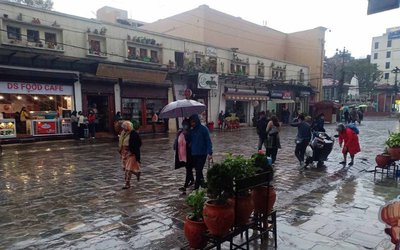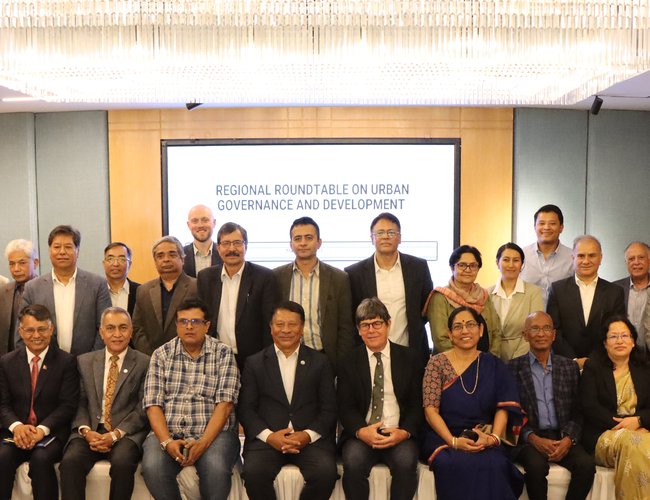
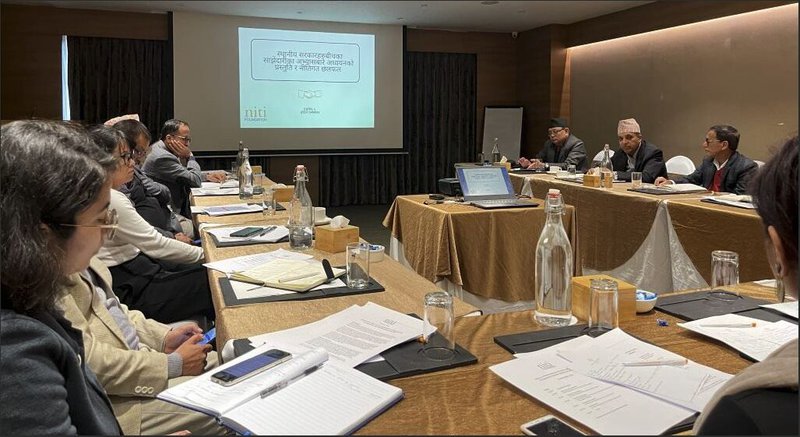
Deputy Prime Minister and Minister of Ministry of Urban Development, Prakash Man Singh, highlighted the challenges of rapid urbanization faced by Nepal. Speaking at the symposium in Kathmandu, the DPM expressed gratitude to the organizers for hosting the important event in Kathmandu.
"Kathmandu, with its rich history and resilience, sets the stage for meaningful discussions. Today, we come together to deliberate on the future of our cities and the well-being of the people who rely on effective urban governance. Our cities should not only offer economic opportunities but also embody culture, sustainability, and resilience," Minister Singh stated.
Nepal, similar to other Asian countries, grapples with the complexities of rapid urbanization, environmental degradation, and socio-economic disparities. The government is dedicated to addressing these issues with a focus on improving lives and livelihoods.
The Regional Roundtable on Urban Governance and Development, held on March 26th, was organized by Niti Foundation and co-convened and sponsored by the Cities Institute at the University of New South Wales, Australia. National and international stakeholders and experts engaged in discussions on various urban governance issues during the event.The roundtable was led by Deputy Prime Minister and Minister for Urban Development Prakash Man Singh. He encouraged regional dialogue to address common issues faced by Kathmandu and other South Asian cities, such as clean rivers, clean air, disaster preparedness, and heritage conservation.
The discussion focused on two main themes: how urban governance can support economic growth in the capital, and the coordination between government levels for inclusive and sustainable urban development.
Participants emphasized a need for urban planning in a more localized form where governing cities (municipalities in Nepal) can form their unique city plans. Specifically, Mr. Biresh Shah from Kathmandu Institute shed light on the focus on the national economy while overlooking the role of cities, deeming this discussion essential. In modern Nepal, urbanization is often viewed negatively, with a nostalgic preference for pastoral living. Cities have long lacked proper recognition and celebration. He said that while we talk about "planned urban development," we rarely ask what kind of cities we actually want. Since Nepal’s cities have developed organically, they are complex and difficult to manage. Instead of applying a one-size-fits-all approach, we must study each city individually to understand what works best for them. Proper urban planning should be rooted in local realities rather than broad, generalized strategies, especially since cities in Nepal have largely gone unplanned for the past 50 years.
Broader plan rooted in local realities was also advocated by Prof Sangeeta Singh from Institute of Engineering (IOE), Tribhuwan University saying without having any vision of an area, just assuming development of roads as development, leads to unthought development. It is necessary to think in spatial terms. For a wholistic model of governance and development a land use plan is necessary and sensitive. Mr. Ganesh Bhatta , Joint Secretary at Ministry of Land Management, Cooperatives and Poverty Alleviation agreed and pointed out that Nepal is the only country without a Land Use Plan for any development infrastructure. Planning land use for rural and urban areas is essential but Nepal has the same land governance system for both urban and rural areas which also shows the lack of planning for urban sectors. Mr. Bhatta emphasized on coordination between ministries to utilize land use planning for urban governance. Some participants suggested that land use planning, urban planning can be done by the local governments themselves instead of relying on federal agencies.
Regarding importance of investment Suman Prasad Sharma, Former Executive Director of KUKLhighlighted a vicious cycle in which low investment leads to poor infrastructure, ultimately hampering productivity and economic growth. According to Mr. Sharma, breaking this cycle requires Nepal to adopt a sustainable trajectory for economic development. Without such a strategy, the country would continue rebuilding the same infrastructure rather than making meaningful progress.
In addition to Land Use plans catered to cities as a solution to moving away from infrastructure based planning towards wholistic models, one of the participants Surya Bhakta Sangachhe(National Society for Earthquake Technology-Nepal)pointed out that factors like heritage conservation, disaster management, environmental protection are excluded from development when the focus is on physical planning.
Wholistic planning also includes consideration of factors like migration. Many participants pointed out changing nature of Nepal’s migration pattern which is shifting from just rural to urban towards hilly to terai.Dr. Meena Poudel, Migration Expert, Former Programme Manager at International Organization for Migration (IOM) suggested that many facets of migration like remittance in development, social cultural capital that migrants bring in need to be included in the urban planning process. This was echoed by Pragya Pradhan, Programme Manager, United Nations Habitat who emphasized that in light of this migration data it is necessary to think of rural areas while considering urban development especially rural urban linkages for transfer of goods, services and employment. She highlighted that there could be a risk of infrastructure development without a benefit of scale in rural areas if we solely focus on physical infrastructure due to migration patterns.
Since the discussion revolved around investment and economic growth through FDI and other measures during the first session, participants constantly reminded of a need for a balanced approach. According to Professor Singh, most rural areas are not urbanized. It provides a chance to rethink ecological balance within our cities and outside. She emphasized that a sole focus on economic growth often leads to omitting factors like ecological balance and social welfare. Professor Singh highlighted the need for an institutional framework and financing mechanisms to address the social aspects of urban governance and development as well contrasting Kishore Thapa who had previously presented on lack of economic growth in Nepal’s cities stating Nepal has not been able to grow economically despite urbanizing rapidly due to its lack of investment in physical, social and economic infrastructure as well as good governance and business friendly environment.
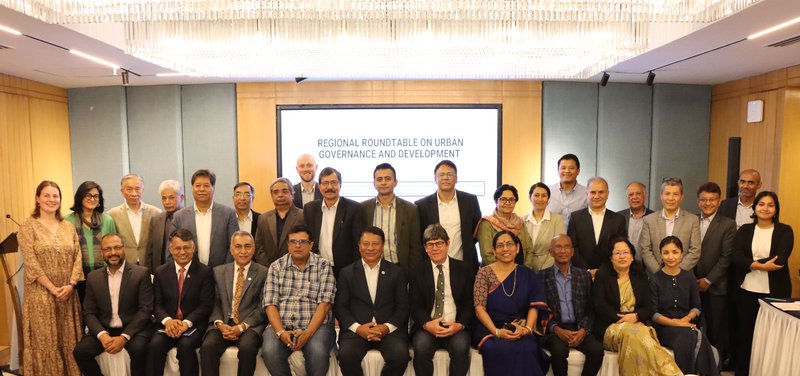
Kalanidhi Devkota, Executive Director, Municipal Association of Nepal urged all participants to recognize the autonomy of local governments post the 2015 Constitution and their role in governing themselves. Mr. Mohan Das Manandhar of Niti Foundation had presented institutional factors which impact decentralization and hence urban governance. Some of those factors are historically followed hierarchical social and governance models, with caste and administrative hierarchies shaping power dynamics which hinder decentralization, path dependency oflocal governments (previously local bodies before the 2015 constitution) that have a historical legacy, working closely with communities hence prefer to deal directly with federal governments instead of provinces. This leads to provinces not factoring into urban governance which also needs a regional approach as pointed out by many other participants. Mr. Manandhar also pointed out the issue with district legacy. Previously, Chief District Officers (CDOs) controlled local service delivery. Although districts were formally eliminated, many CDO functions persist under Chief Administrative Officers (CAOs), creating governance ambiguities. Sectoral fragmentation was discussed by Mr. Manandhar and other participants as well as a major institutional problem in urban governance.Local governments primarily coordinate with the Ministry of Federal Affairs and General Administration (MOFAGA) instead of the Ministry of Urban Development (MOUD), which has technical expertise in urban planning. Partcipants suggested that local governments should be able to access all ministries not just Ministry of Federal Affairs and General Administration (MOFAGA). Federal ministries continue to implement projects that should fall under provincial jurisdiction. Participants encouraged reexamining how urban plans are made in local governments and how ministries at the federal level implement projects which could have been implemented by the provincial governments. Financing remained another key issue while discussing local governments and their role in urban governance. Economic federalismremains underdeveloped in Nepal, limiting the ability of local governments to drive urban economic growth. Key financial challenges include fiscal dependence, limitations of public-private partnership and a rural centric development approach. Local governments rely heavily on federal grants, with limited revenue autonomy. Bureaucratic hurdles further complicate fiscal federalism.Due to a lack of land regulation at the local level, Public-Private Partnerships (PPPs) struggle to take off.Nepal’s socialist, community-based orientation has historically focused on poverty reduction and rural development rather than urban economic transformation. Municipal leaders continue to prioritize agriculture and irrigation over urban infrastructure.Reforms like clarifying governance roles, strengthening provincial governments, fiscal reform, integrating urban planning and balancing rural and urban development are essential to overcome institutional barriers to urban governance.
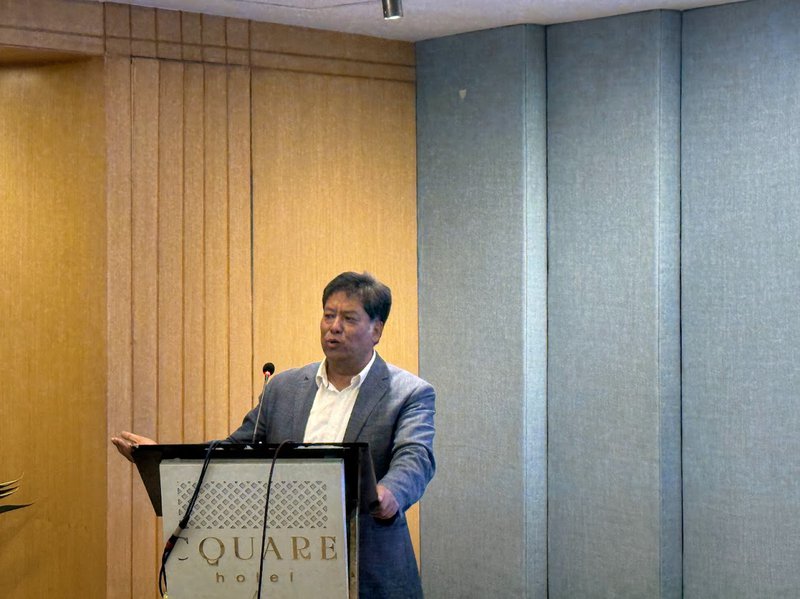
Mayor Nagesh Koirala, Biratnagar Metropolitan City added that local governments rely on federal grants (60-70% of budgets), which are unpredictable and tied to political priorities and political reach. Our own revenue (property tax, fees) is largely insufficient for large-scale projects which renders them dependent on federal agencies for funding. Biratnagar could leverage private investment for waste-to-energy or transport—but PPP frameworks are absent, and federal laws discourage local innovation. As pointed out by Mr. Bhatta from the Ministry of Land, land regulation is not under local government’s purview either. To overcome this, Dr. Debolina Kundu from Indian National Institute of Urban Affairs suggested that mechanisms like Joint Service Arrangements could be used to finance the initiatives.
Fiscal devolution by allowing municipalities to retain Bahal Kar (rent tax), land revenues, and access green financing for climate projects could empower cities to make local plans. These would need to be supported by municipally trained officials which can be done through a federal-local technical support unit to train municipal staff in urban governance. Further, he highlighted the need for Provinces to be strengthened to increase regional coordination. He suggested that Koshi Province must develop its own urban policy framework—not just mimic federal templates although government of Nepal has just launched a National Urban Policy. The mayor reminded everyone that federalism is a process not an event which is attained after legal devolution.
- Weather: Possibility Of Rain And Snowfall At some Places Today
- Apr 28, 2025
- Weather To Remain Partly To Generally Cloudy
- Apr 27, 2025
- KOICA Concludes Integrated Rural Development Project Worth 4.7 Million USD
- Apr 25, 2025
- Budget session Of Federal Parliament Begins Today
- Apr 25, 2025
- 10th Memorial Day Of Gorkha Earthquake
- Apr 25, 2025






